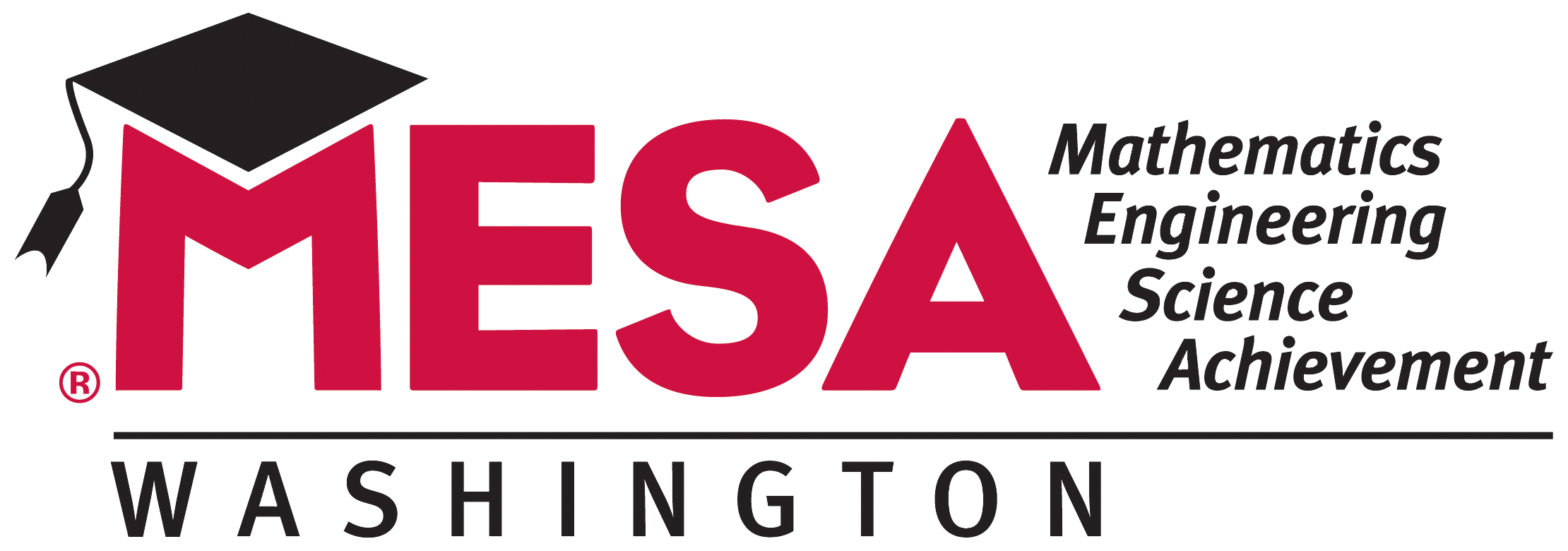Washington MESA Community College Program
Twelve Washington state community colleges offer MESA Community College Programs and centers, with two partnering universities (University of Washington and Washington State University).
- Clark College, Vancouver
- Columbia Basin College, Pasco
- Edmonds College
- Everett Community College
- Green River College, Auburn
- Highline College, Des Moines
- Olympic College, Bremerton
- Seattle Central College
- Spokane Falls Community College
- Tacoma Community College
- Wenatchee Valley College
- Yakima Valley College
 MESA Changes the Equation
MESA Changes the Equation
The MESA Community College Program (MCCP) provides academic preparation for community college students who are interested in transferring to four-year institutions to attain baccalaureate degrees in STEM fields. MESA establishes an on-campus peer community to reinforce and support academic achievement while providing academic assistance and transfer guidance.
MESA answers a call from the National Academy of Sciences for our nation to “draw on the minds and talents of all Americans, including minorities who are underrepresented in science and engineering and currently embody an underused resource and a lost opportunity.”
- MESA serves students who are traditionally underrepresented in STEM fields, including African Americans, Native Americans, Hispanic/Latinos, Pacific Islanders and women.
- Most MESA students are the first in their families to attend college, are low-income, and have not been exposed to STEM curricula and career choices.
Contacts
Valerie Sundby
Director, Transfer Education
vsundby@sbctc.edu
360-704-4338
Kayley Cruz
Administrative Assistant
kcruz@sbctc.edu
360-704-4352
MESA Community College Program Components
- An orientation course that introduces students to STEM careers, learning strategies, and other tools for success.
- Academic Excellence Workshops that teach collaborative learning techniques to help students master complex concepts and succeed in STEM courses.
- Academic advising to keep students on track.
- A designated study center where students do homework and establish a learning community.
- Personal assistance in transferring to a university.
- Direct administrative support for students, which includes a director, faculty, and advisor support.
Proven Results
- At participating community colleges, MESA students were more likely to persist, transfer to a university, and earn a STEM-related bachelor’s degree than other under-represented students pursuing STEM studies at those colleges.
- Compared to the rest of the community college system, MESA colleges produce a greater share of Associate of Science-Transfer degrees (AS-T) with more diverse graduates.
Increased degree production
Preliminary research results of MESA show 52 percent of students entering the MESA program between 2011 and 2013 went on to earn a two-year degree by 2016. Nearly half earned a STEM degree.
Graduates became more diverse
- MESA colleges produced more AS-T degrees between 2010 and 2015 by graduating a greater share of under-represented students who might otherwise have chosen a non-STEM path.
- The colleges increased the share of STEM degrees by 5 percent for Black/African-American, Hispanic/Latino, Alaska Native/Native Americans and Pacific Islanders compared to the rest of the college system.
- MESA graduates are also more likely to be first-generation college students (47 percent compared to 43 percent), and they are more likely to be women (30 percent compared to 26 percent).
- In the first MESA graduating class of 2011-12, 100 percent of the students who earned bachelor’s degrees majored in STEM fields.
See the Washington MESA one-pager for more background and research.